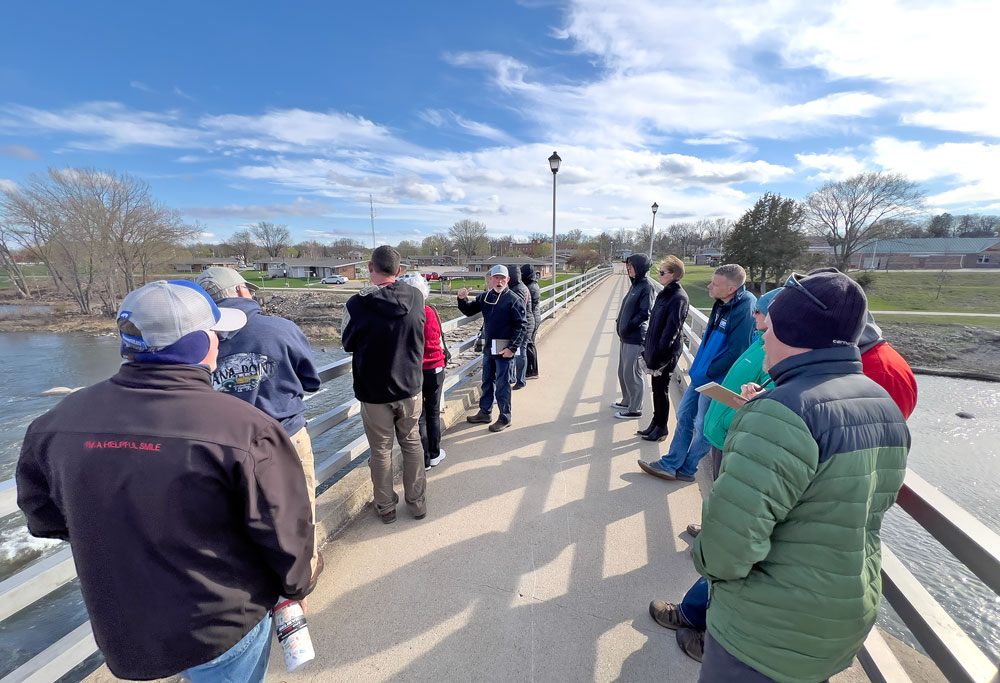Wrestling with the Reformation
The Rev. Matthew Lucio, Charles City Seventh-day Adventist Church
 “Is the Reformation over?” That’s the provocative question I am wrestling with this year, the 500th anniversary of the Reformation. Given the anniversary, I thought it’d be grand to organize a public seminar on the issues of the Reformation. So I dove furiously into a stack of books. I flew to Wittenberg to visit Luther’s house (he wasn’t home). I talked to professors from Michigan to the Philippines. All the while, a Death Star-shaped shadow crept over my plans: the realization of just how hard it is to talk about the Reformation.
“Is the Reformation over?” That’s the provocative question I am wrestling with this year, the 500th anniversary of the Reformation. Given the anniversary, I thought it’d be grand to organize a public seminar on the issues of the Reformation. So I dove furiously into a stack of books. I flew to Wittenberg to visit Luther’s house (he wasn’t home). I talked to professors from Michigan to the Philippines. All the while, a Death Star-shaped shadow crept over my plans: the realization of just how hard it is to talk about the Reformation.
It’s not that the Reformation itself is difficult to understand. After centuries of the medieval church failing to reform itself, people like Martin Luther and Ulrich Zwingli ended up breaking from the church entirely. From that story-in-a-sentence we have Baptists and Lutherans and Presbyterians. Easy. What’s hard is talking about this in the 21st century.
As you can imagine, a lot has changed in 500 years (of note, the invention of the selfie stick). We don’t look at the Reformation the same way people did even a hundred years ago. Notre Dame professor Mark Noll recalled how, in 1873, a meeting of influential Protestants decided that the Roman Catholic Church was the greatest threat to Christianity. Many Christians would now find that idea laughable, or even embarrassing. Certainly, I’d like to believe Christians have grown in charity toward one another. But perhaps we’ve also grown in ignorance, too. Let’s face it, few are sharpening their axe over the Lutheran-Catholic difference between “transubstantiation” and “consubstantiation” anymore. But part of the reason for that is because, I suspect, many no longer appreciate the difference between the two.
That’s why the real question isn’t “Is the Reformation over?” but, “does the Reformation matter?” And when you’re trying to do a public seminar on the Reformation, realizing that many might not even care is a little dispiriting. It’s not that I don’t understand why people are somewhat apathetic to the Reformation. It’s a 500 year-old argument. I usually give up about fifteen minutes into an argument, because I realize I could have finished washing the dishes by now. Families have been torn and wars fought over the differences between Protestants and Catholics. I get why fighting over six syllable words seems ridiculous in a world focused on fighting poverty and terrorism. The rising atheistic mood has led many churches to find common cause and discover the wealth of truth we share in common. It used to be that one’s church affiliation meant you had to live in certain towns and do certain jobs and could have certain friends. (We see the latter very clearly in Shakespeare’s “Romeo and Juliet,” where two warring families represent, in part if not in whole, Protestants and Catholics.) As a result of the Reformation, new churches have thrived by eschewing sticky doctrinal finery for a few warm beliefs which, they reason, are really the campfires Christians should unite around. The ascendancy of these churches is proof that an increasing number of Christians are open to resolving the Reformation by ignoring it.
Nevertheless, we should care about the Reformation, not the least because it laid the foundation for our modern world. The popular yarn that it was secular, Enlightenment luminaries and scientists who shook free of Christianity in order to make the modern liberal democracy is, in the understated words of Alistair McGrath, “historically unacceptable.” Isaac Newton was just as much a theologian as he was a scientist. The Reformation isn’t just the story of our modern churches, it’s the story of our modern world. Understanding it helps us to understand ourselves.
The Reformation is also the tale of some incredible people. Martin Luther, the delinquent monk, never intended on getting married. But after he smuggled some nuns out of a convent among fish barrels he changed his mind. His reason? Because it “would please his father, rile the pope, cause the angels to laugh, and the devils to weep.” Whatever your theological convictions, everyone can enjoy the story.
More importantly, to ignore the Reformation is to repudiate it. One of the engines of the Reformation was the idea that Christian churches should always be reforming. Because we are 500 years away from the Reformation, Protestants might be interested to learn how much of what Luther, Calvin, and Co. challenges us to change, or at least to think seriously about what we believe. In the end, that’s my hope in this seminar. I think it’s important that people think critically and seriously about what they believe, because what we believe can change the world.
The Rev. Matthew Lucio is pastor at the Charles City Seventh-day Adventist Church, 110 Hillside Drive, 641-228-6557.







Social Share